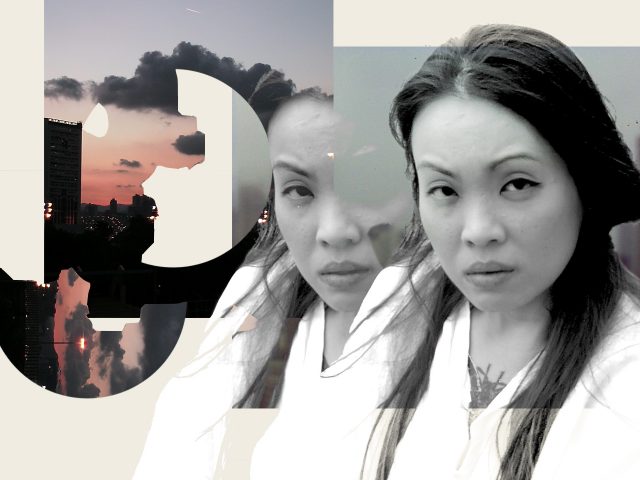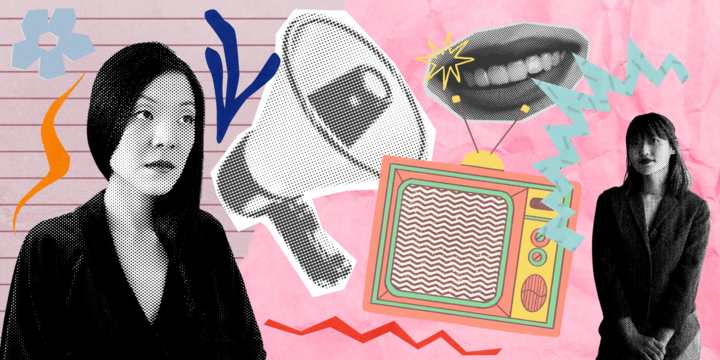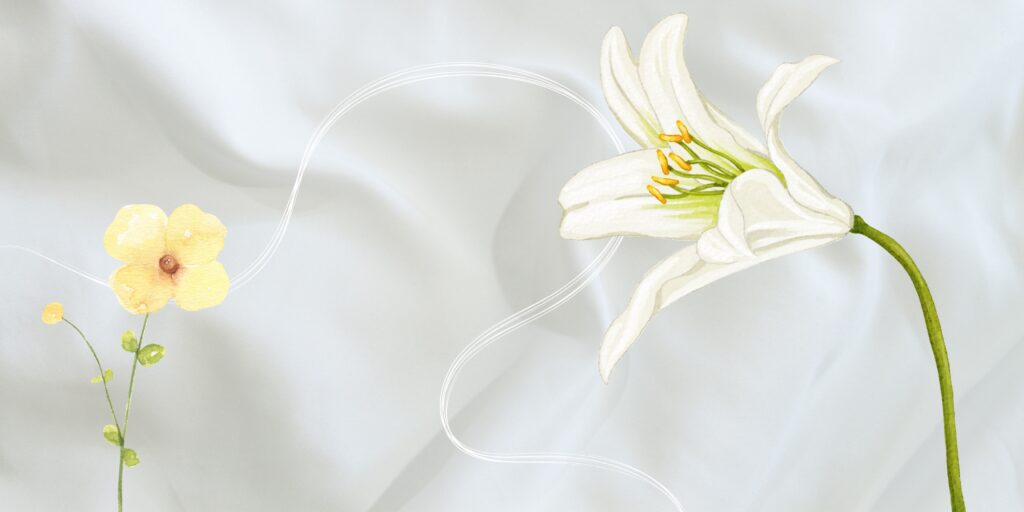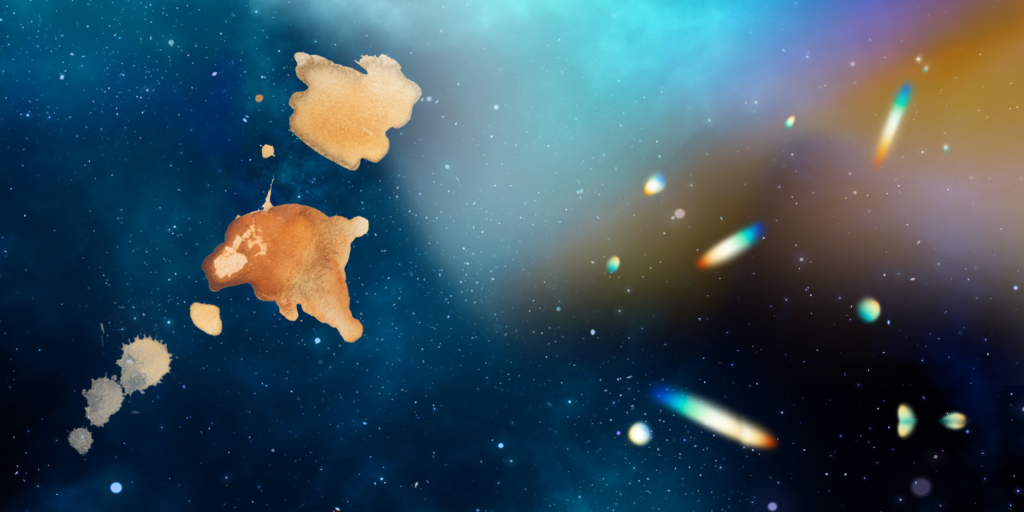The Hong Kong poet talks the Umbrella movement, being an outsider and an insider in Hong Kong, and how she translates the world.

April 10, 2018
I first published Hong Kong poet Wawa’s poems in our literary journal Cha in December 2014. These are poems that comment on the Umbrella Movement—a movement that aroused many Hongkongers’ longing for democracy and freedom of expression—in surprising and captivating language. Again, in September 2016, in a section of Cha that remembered the Umbrella Movement, Wawa generously contributed her poetry (we felt like such a section without Wawa’s input would be incomplete). But it was in her collection Pei Pei the Monkey King, for which I wrote a blurb, that I came to really appreciate her profound love for the idioms, rhythms, myths, and stories of the city. Written in Cantonese by Wawa and translated into English by her husband Henry Wei Leung, himself an award-winning poet, Pei Pei attests to the versatility of Cantonese, the power of storytelling, and how Hong Kong can be so many things for different people.
The following conversation with Wawa is part of an academic study conducted by myself and Jason Eng Hun Lee that charts the recent development of local Anglophone poetics in Hong Kong and Singapore. We chose these two places not only due to their geographic proximity, or their similar-yet-distinct colonial histories, but because their local communities seek to maintain their cultural identity in the face of the neoliberal capitalism, and the rapidly changing economic and demographic pressures that globalization brings. We hypothesized that these two poetic communities not only provide value to their domestic surroundings by mapping their individual historical and cultural trajectories, but also reflect larger movements within the Southeast Asian region that seek to counter the impact of globalization.
We chose Wawa as one of the Hong Kong poets to study because hers is a distinctive young voice. Her writing style is markedly different from other poets in the city who tend to follow the Western free verse tradition. Instead, Wawa plays with form and mixes Cantonese sensibilities with English expressions. She is also a poet who is keenly aware of the changing societal environment in Hong Kong, and when reading her poems, often deceptively straightforward, one can feel a hint of subdued anger, helplessness, and concern about the state of affairs in the city, and the world at large.
—Tammy Lai-Ming Ho
Do you remember what inspired you to write your first poems?
I started reading poetry during my first marriage, when I was living in Germany. I didn’t speak German, and so was unable to communicate with anyone or go out. I lived with my desk and all I had was poetry. The next year, when I finally broke away from this situation and returned to Hong Kong, I wrote my first poem on a rooftop of the Chinese University of Hong Kong, smoking in front of the sunset, staring out at the boats in Tolo Harbour, filled with forlornness, self-pity, and freedom.
What are some important moments in your early experiences as a poet?
Like most writers, being ignored, rejected, and dismissed was at the foundation of my first years of writing. Some of the harder feelings to endure were that of being rendered invisible, or seen as a hobbyist by close friends, or as a fool by the local Chinese writing scene. It’s deeply written into our Hong Kong colonial humor to think that you’re outsmarting others by denigrating them, by wishing to see them fail. Most of the time I felt like I was begging people to read my work. Nobody had inspired me and nobody had condescended to teach me anything (until I finally agreed to pay, out of my entire savings, for a creative writing course through a local MFA program as a visiting student). I didn’t have any mentors, and felt unsure of my work because my academic background was in music and philosophy, with a work background in the visual arts.
I had a job interview at the Hong Kong Literature House some years ago. During the interview, I mentioned the huge gap between the English and the Chinese scenes in Hong Kong. I asked if they would include Hong Kong writing in English too, if their mission was to protect and consolidate Hong Kong literature. In short, I questioned what Hong Kong literature was, and who had the right to represent it. In the end, I returned my application with only the following words in upper case: “I JUST WANT TO WRITE.” I knew then that I wanted to break the linguistic superstition in Hong Kong, not by bridging the gap between the Chinese and English camps, but by playing with both of them at my own disposal, belonging neither to the Chinese local nor to the English expatriate, simply expressing the originality of Hongkongness through and above these linguistic cages.
Cha published a few of my poems during the Umbrella protests around that same time. This cleared a lot of the pessimism in my marrow, and I was very grateful that I finally found a journal that would read my poems for what they were, not for my name or connections or bio.
My encounter with my current husband, an American poet who was then on a Fulbright in Hong Kong, was probably the biggest turn in my life on many levels. He was the first poet who took me seriously as a poet, and the first to tell me to stop wasting my time feeling insecure about my poems.
How useful is poetry as a medium for expressing your personal experiences?
Poetry is not an interest, not a love, not even a dream, but an existential need. I wanted to be a nun when I was in elementary school. I don’t have desires, goals, or ambitions; I don’t even like eating food; I had thought of taking a Buddhist renunciation at the end of my first marriage. There’s nothing I want to engage with in reality. But I’m cursed by my sensitivity to others’ pain. Poetry is that gossamery thread that connects me with the world, that keeps me alive in a somewhat meaningful way. It’s my translation of this world, and how I make sense of it.
What aesthetic or poetic style would you say best characterizes your work?
Minimalistic, quiet. Every manuscript is an artwork to me, not a collection of individual poems. Every manuscript responds to how far in time and space my mind has travelled, and each time, I need a violent change. So experimental might also be the word. My first book is a bunch of cute-dark children’s songs written on a mountain; the second one “draws” images with words; my current manuscript is a bunch of sutra-like poems whose execution I’m still experimenting with—I want to destroy the words and restore them to a primordial form as impressions.
Who would you cite as your main literary influences?
No one. Nietzsche, maybe. Maybe because it was quite a pain to write my MA thesis on him.
How often do you write about your home city? Does living outside of your home city affect how you represent it in your writing?
I don’t really write about Hong Kong as a subject. Even though I try to distance myself from writing about Hong Kong, because I don’t want to turn my home into an exotic porn for foreigners, I can’t help relating to this place in my writing explicitly or implicitly. No matter how I avoid it, I am still a person coming from a place—that’s the the irreducible connection.
How do you think a city is best narrated?
The narrator’s voice disappeared in the city—so instead of hearing the narrator’s own voice in a place, it’s the place’s voice being heard through the narrator. I am always inside something as an outsider (for example, a couple years ago I was singing the U.S. anthem with a local choir at a football game in Hawaii while secretly still being there on a tourist visa and having learned the anthem overnight in a panic). Such a perspective is infinite. It allows even a handrail in a shopping mall to speak to me.
Is there any particular aesthetic or poetic style that you use to represent your home city?
No. My work is my self, and my self is my city.
Have any recent events (social or political events, changing demographics, economic downturns) been a catalyst to your writings about the city?
When the Fishball Riot happened in 2016, we were in Honolulu. More recently, my husband and I visited Hong Kong. The only thing we could do to make up for our absence during the riot was to go to the High Court and sit in on the trial hearings for the rioters. It’s different for my lawyer-to-be husband whose decision in the Umbrella protests to change his career and pursue social justice took flight. But for me as a poet, I was sinking in helplessness, burning from my entrails to my limbs, staring at the floor and sobbing quietly. I think it is this helplessness, which has been growing since I left Hong Kong, that forces me to confront the tension between the political and the religious. I’m physically so far that my body can’t do anything for Hong Kong, not even cough out tear gas again. I could only look at the blank faces of those young rioters who bet their future for Hong Kong and have already been forgotten by Hong Kong people outside the court. When I was in the Czech Republic, I heard the story of how the Golem was invented by Jews during WWII. When you are in utter helplessness, you start imagining something mythical to save you and to soothe your sorrow. I started muttering something like a prayer, something like a poem, as I stared at the courtroom floor.
What is your perception of your home city’s history?
I am very aware of the colonialness of our people—especially after I moved away from Hong Kong—that weird mix of Chineseness and colonialness since the rule of Britain. I myself resist those traits of being a colonial Chinese. My husband says we are always seen as the worst of both East and West, and never seen for something in ourselves; and I added: that’s why we are infinite. Many don’t see this, and always try to be someone else. The most neutral remnant of our colonial history, to me, in me, is the coexistence of two languages, of the English personality and the Cantonese personality. Now there’s even a complicated Mandarin personality. When I’m trying to process, understand, and accept change, I am also looking for the quintessence of a Hong Kong that doesn’t and won’t change. I’m trying to capture it through the ecstatic state of my poems.
Which particular aspects of Western and colonial representation do you challenge or engage with in your poetry?
My challenge is to challenge nothing because I don’t know and don’t care what others write and think about Hong Kong. There might be people trying to tell the world what Hong Kong is from a local perspective, or an expatriate’s perspective, or where she stands in the world and in history. But I’m not writing about Hong Kong; I’m writing about my home.
Hong Kong needs her own spiritual leader to address the suffering of her people, and there’s none. That sounds quite strange and stupid and unfashionable for modern poetry. But that’s where I see the meaning and purpose of poetry. There’s something sacred in it, and I want to restore that.
How do you think your home city might change in future?
We lose more and more by the day, and the people’s numbness grows by the day. At times I thought I was waiting for something—an eruption as much as a miracle maybe, like how the Umbrella Movement and Fishball Riot came about. But you also know there’s likely a dead end ahead. I think I’m learning to quit pain by quitting myself, quitting my perspective. I’m trying to look not from an insider nor an outsider’s perspective, but a higher one: the sky’s, the gods’, the mountains’, the land’s perspective. I am trying to look at changes in my home from the perspective of eternity.
How do you think your home city differs from other Asian cities?
Chinese colonialness: collective self-hatred, self-emptying self-denial; absence of self-authority and self-affirmation. Pretending to outsmart your own kind by refusing to acknowledge that anyone can be better, or even good. Sovereignty always coming from the “outside” world.
What positive and negative impact has globalization made on your home city?
Cancelling Easternness with Westernness, and then cancelling Westernness with Easternness. The double cancellation creates such a cultural-existential void that actually it opens the possibility for a diverse or infinite individualism. But an easier way to deal with the void, for generations, has been to climb the social ladder through wealth. To add globalization to an ex-colony cum hyper-capitalistic city is to dilute its sense of identity further, by exposing it to a bigger and better world in a flatter and more uniform way in which money is the ultimate measurement for man.
How do you think your home city is perceived around the world culturally (particularly in terms of literature), socially and economically?
I don’t think the world knows that we have our own literature. Western readers know a great deal of Chineseness through Asian American literature. But Hong Kong’s voice as an ex-British colony is fundamentally different from an Asian American voice. Hongkongers’ self-hatred about Chineseness in their bones is different from the rediscovery and affirmation of Asianness in Asian American writing. But there isn’t enough urgency, or power, from Hong Kong to assert her own voice. It requires a Western reader to go out of his way in order to dig Hong Kong out from an ocean of English writing about China.
If the city could answer your questions, what would you ask it? Why are these important issues to you?
“What is my purpose for you?”
Let’s consider the reverse. What would your city ask you? Why?
“Can you stay for me?”



